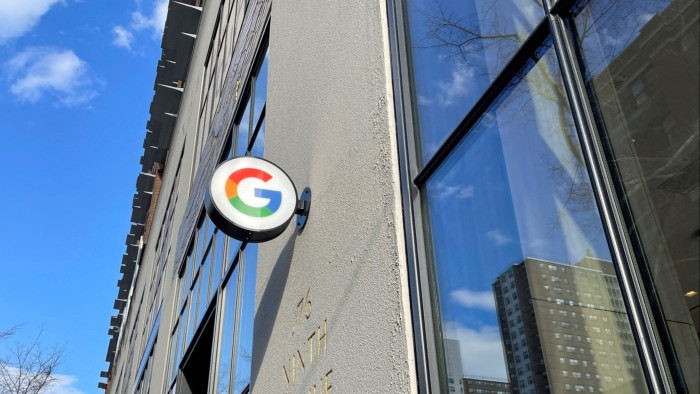
Unlock the Editor’s Digest for free
Roula Khalaf, Editor of the FT, selects her favourite stories in this weekly newsletter.
One of the more irritating things about artificial intelligence bots such as ChatGPT is how reluctant they are to say “I don’t know”. A similar inability to speak plainly plagues the wider technology world. Recently, it cost Google parent Alphabet $200bn.
That was roughly the sum wiped from the search-engine giant’s market capitalisation on Tuesday after it announced planned capital expenditure of $75bn this year.
The amount is 50 per cent more than what the company spent last year, an increase explained by the need to develop ever-better AI. As always, there was little detail on where the spending will go or how much profit it will generate.
Alphabet has only itself to blame if that number was a surprise. Analysts had forecast just $60bn of spending for this year, according to Visible Alpha. Unlike some of its rivals, Alphabet does not give “guidance” to keep investors’ expectations within a reasonable range. But that secrecy is a choice, not a necessity.
As tech companies raise bets on AI and cloud computing — Microsoft plans to spend $80bn in its fiscal year ending in June and Facebook owner Meta has allocated up to $65bn in 2025 — the absence of detail on what they are buying begins to stretch credulity.
Alphabet’s finance chief Anat Ashkenazi said Google’s purchases would mostly be servers and data centres. But there was nothing on what kind, from which suppliers or where they would be located.
Other industries worked this out long ago. While tech may not like to compare itself to more earthy sectors, mining companies have learnt the hard way that investors do not tolerate overinvestment forever.
Rio Tinto and BHP for instance tout “return on capital employed” as a sign of discipline. Investors watch closely, as they should — large mining projects on average run 79 per cent over initial budgets, according to McKinsey estimates.
Wall Street banks, too, have met investors half way. Goldman Sachs, Citigroup and their peers put out targets for future returns on equity, something that is not always pleasant for those who undershoot.
Goldman missed its 14 per cent hurdle last year. Citi chief Jane Fraser has had to lower her target for 2025. Occasional servings of humble pie, though, are the cost of spending other people’s money.
If Alphabet wants to avoid future market upsets, it could always give investors some numbers to conjure with. It could sketch out its hoped-for returns on capital expenditure or target a certain amount of revenue for each dollar invested. Even a distant goal is better than none. Otherwise, investors will start to suspect that, like dissembling chatbots, Silicon Valley is being less than honest about what it does not know.
https://www.ft.com/__origami/service/image/v2/images/raw/https%3A%2F%2Fd1e00ek4ebabms.cloudfront.net%2Fproduction%2F11c404c1-9e26-4935-b59a-1391ab2006e0.jpg?source=next-article&fit=scale-down&quality=highest&width=700&dpr=1
2025-02-04 22:13:25